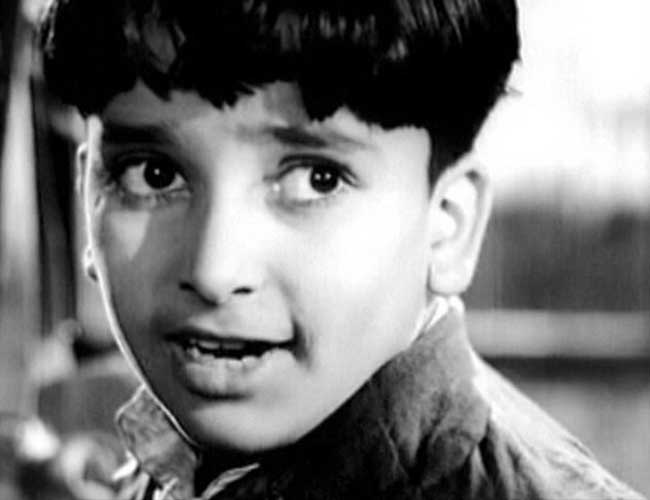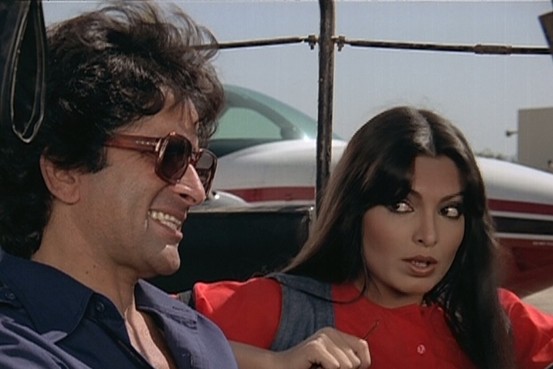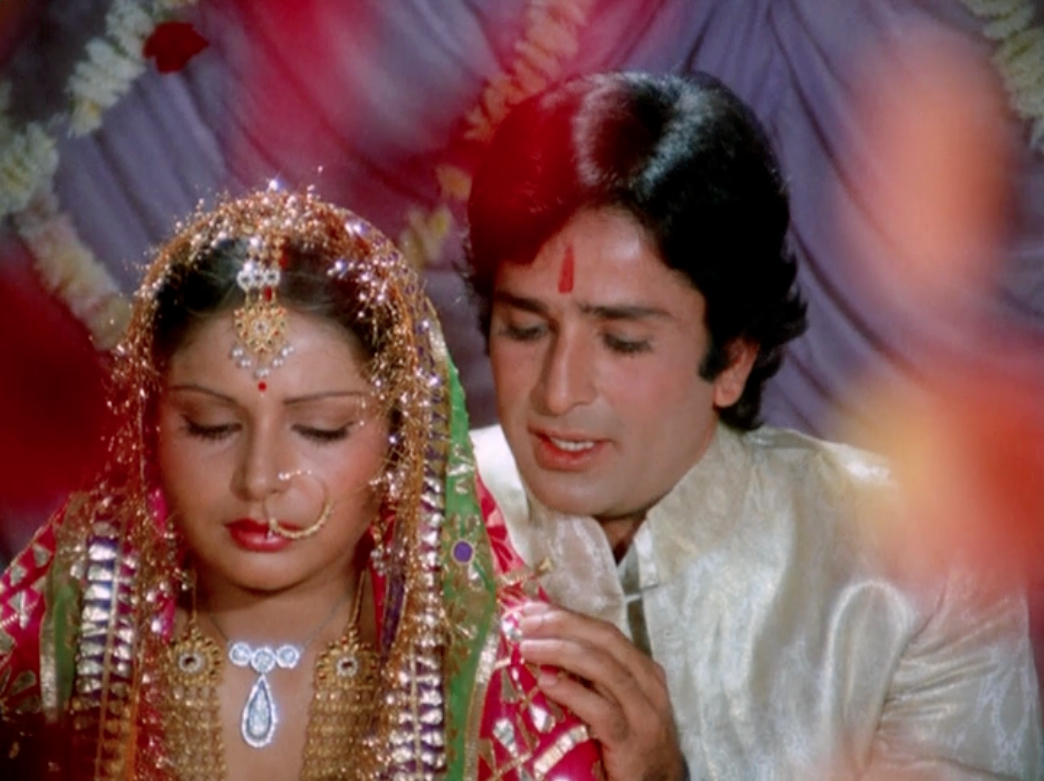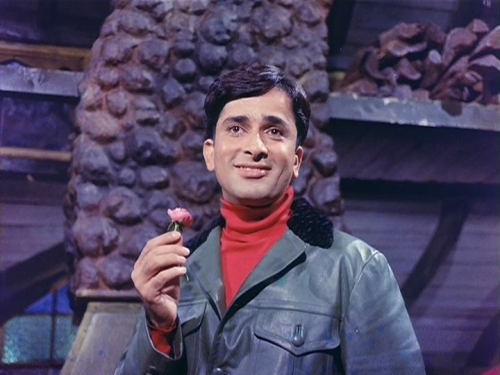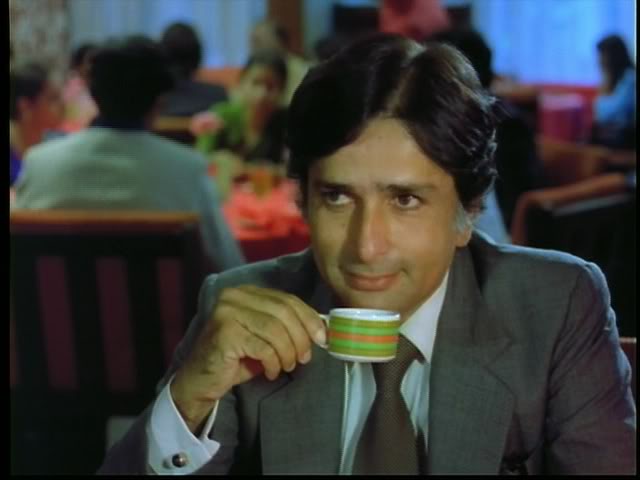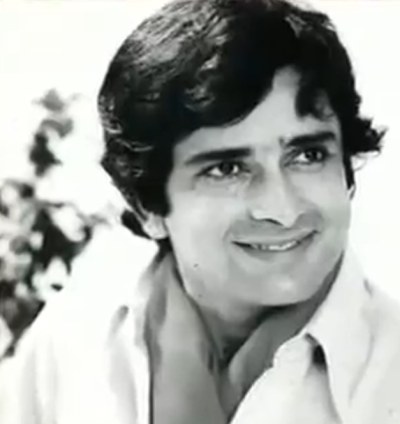In Raj Kapoor’s Awaara (1951), Shashi Kapoor was a cherub with the eyes of a little devil. As the disadvantaged child of an impoverished mother, you see him brutalised by a cruel world, lose his innocent faith in life, in goodness and turn to petty crime to survive. This shift could not have been easy for a child to negotiate but he pulled it off. However, as a mainstream actor, Kapoor was not very often allowed to explore this dark side. He was mostly the sunshine boy of Hindi cinema. The jovial shikara wala of Jab Jab Phool Khile (1960) who only broods when the woman he loves dances with another at a party. Then he sings, ‘Yahan Main Ajnabi Hoon’ with stormy eyes that threaten to shed fire, not tears. And then he is the love-struck suitor following the heroine through sunlit groves in Kanyadaan (1968), singing ‘Likhe Jo Khat Tujhe’. He is an insecure Muslim boy desperate to marry his aristocratic girlfriend in Neend Hamari Khwab Tumhare (1966), the dashing modern-day Robin Hood of Fakira (1976). The man who made ‘Le Jayenge..Le Jayenge Dilwale Dulhaniya..,’ the anthem of lovers far before Raj and Simran coined the abbreviation, DDLJ.
Kapoor was the happy-go-lucky engineer in Kaala Patthar (1979) who sings Sahir’s songs on a bike, jokes about different types of koylas (“Ek koyla woh hota hai jis se deewar par bacche acchi acchi, pyari pyari baatein likhte hain!”) and loses his temper only when provoked by injustice and then tells the local bully, “Main tumhein itna maaronga..itna maaroonga…’’ till you break into a smile. Because really, who could imagine Shashi Kapoor to be anything but affable? But he could also be self-righteous and inconvenient. Remember, “Bhai, tum sign karoge ya nahin?” And the mother of all punchlines in Bollywood? “Mere Paas Ma hai!”
Remember him in Trishul (1978) where he was the sunshine to Amitabh Bachchan’s darkness? He flirted with the female GM of a company by constantly shaking her hand, congratulating her on the successes of feminism and asking her out to lunch. And even saved an awkward moment from becoming ugly when he discovers that his car keys were not misplaced but stolen by a man who wants to steal his girlfriend as well. He showed you how easy it was for him to play a intrinsically decent man.
He was the adoring husband in Kabhie Kabhie (1976) who tells his wife, “Tumhari aankhen aisi hain jaise kisi garib ke jhopde mein jalti hui laltain!” Who encourages his son to follow the love of his life to the end of the earth. No one could have pulled off these roles with this ease. But in 1982’s Heat and Dust, he showed us a Shashi Kapoor we had not seen before.
A man of indiscreet, impetuous lust. Far before the term, ‘crossover success’, became commonplace, Shashi Kapoor was the star of international collaborations like The Householder (1962) Siddhartha (1972), Shakespeare Wallah (1964) and more and you saw glimpses of the intelligent actor he was. Someone who spoke good English naturally, effortlessly, who could read the subtext in a role and underplay his movie star looks to be the skin of a tongue-tied spouse, a yogi who has lived life in all its fullness and now wants to be the river of calm and also a man who knows the power of his devastating beauty..yes..beauty because there really is no other word to describe Shashi Kapoor in his prime. Like his father Prithiviraj Kapoor in Sikander (1941), Kapoor was a gorgeous man, with a smile that could light up a dark night.
Watch him in ‘Khilte Hain Gul Yahan’ (Sharmilee). In that glistening army jacket, the red sweater, with a purposeful glint in the eyes and walking with a swagger that comics still mimic, he made you forget even Rakhee’s unearthly eyes. Or him serenading Asha Parekh in Pyar Ka Mausam with ‘Tum Bin Jaoon Kahan’ in a way that will make the romantic prototypes of today look jaded. That is what Shashi Kapoor never was. Jaded.
He danced like no one was watching. He knew the limited vocabulary of commercial cinema and nailed it, but then there was so much more. And that is why, the cinephile in him turned to production and founded Film Valas with wife Jennifer Kendell and produced some of the best films of the alternate cinema movement. In 1978’s Junoon, you saw the hungry actor and producer merge to create a searing saga about mutinous love. Javed Khan is possibly his best role.
He was immensely moving in another one of his productions, Kaliyug where he played the modern-day Karna who realises he is nothing more than a pawn in the hands of two warring business families. And that unforgettable scene where denuded of all vestiges of identity, he curls up in a fetal position and cries in primal grief. He had so much gravitas also as the patriarch in Govind Nihalani’s Vijeta (again a Film Valas production) where he transitions from a controlling father and insensitive husband to someone who from his deathbed guides his son with a life-changing line, “Is marusthal mein apni maa ke cactus ban jao.” There are so many Shashi Kapoors to love and celebrate but the one we will never know really is the man who despite his ill health, still visits the cafe at Prithvi Theatre to perhaps relive the moments his wife spent here, building the structure and the legacy from the ground up. We will never know why post his wife’s death, the monsoon joie-de-vivre dried up, leaving him with little desire to either court life or success.
Kapoor has been awarded the Dada Saheb Phalke Award finally in recognition of his body of work and his achievements as a cinematic pathbreaker. But the honour perhaps has come too late.
Maybe, Shashi Kapoor needs no accolades now to be reassured that his career was superlative. Maybe life means more to him, now. A life of looking back in wonder and ahead with hope. And just the joy of watching the world thrum and hum around him over a cup of the famous Prithvi chai.
 with The New Indian Express Reema Moudgil works for The New Indian Express, Bangalore, is the author of Perfect Eight, the editor of Chicken Soup for the Soul-Indian Women, an artist, a former RJ and a mother. She dreams of a cottage of her own that opens to a garden and where she can write more books, paint, listen to music and just be silent with her cats
with The New Indian Express Reema Moudgil works for The New Indian Express, Bangalore, is the author of Perfect Eight, the editor of Chicken Soup for the Soul-Indian Women, an artist, a former RJ and a mother. She dreams of a cottage of her own that opens to a garden and where she can write more books, paint, listen to music and just be silent with her cats






